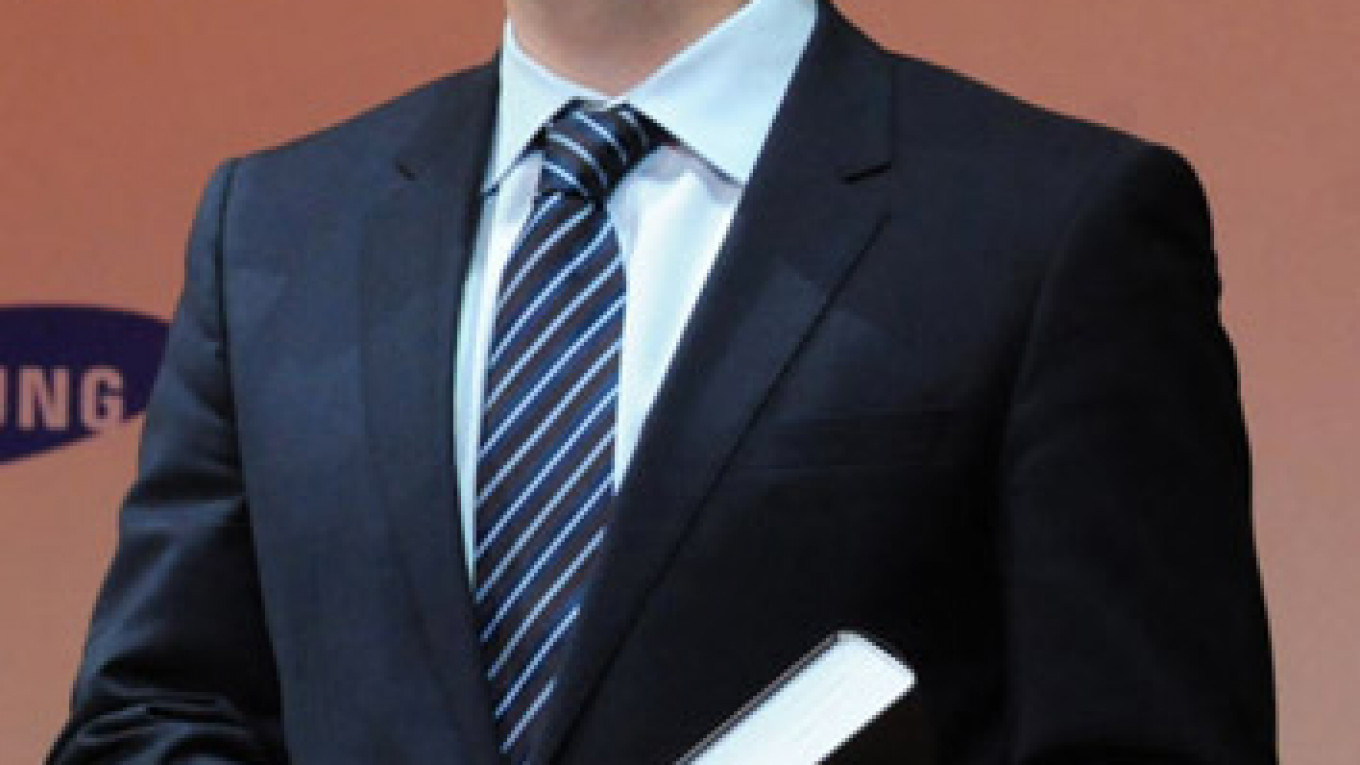The fact that Russia's Culture Minister Vladimir Medinsky has declared that the government will no longer finance so-called "Russia-smearing" films was the least shocking news I've heard in a while.
What on earth qualifies as a "Russia-smearing" movie is, of course, debatable. Do documentary films such as Lyubov Arkus' "Anton's Right Here," which details the hardship and prejudice encountered by people with autism, qualify?
Did Vasily Sigarev "smear" Russia when he made "Living," a movie about three people suffering from grief and loss in a grim countryside winter? Should we throw rotten eggs at Russia's official Oscar entrant, Andrei Zvyagintsev, for making "Leviathan," which tackles the horrors of corruption?
In the current political climate, when we have an increasingly defensive government dealing with sanctions and the slide of the ruble, ostentatious displays of patriotism are expected of every prominent official. Medinsky is only doing his part.
Indeed, we should probably be grateful that a sliding scale of a movie's level of Russia-smearing has yet to be introduced. I'm sure that at least one enterprising official is dreaming of it right now.
However, it is curious that even while Russian officials rail against all kinds of wrongs committed by artists who stubbornly refuse to adopt the blank-eyed stare of the recently lobotomized and make films and albums about how everything's just dandy — thanks very much — one particular art form escapes their attention.
I am talking about Russian chanson music — the darling of taxi drivers, roadside cafe bouncers and, in general, people who are said to form the Kremlin's "base."
Chanson is a complicated art form, of course, and pigeonholing both it and the people who listen to it is a useless task. Still, one can't deny two simple facts about the genre: It is very popular and at its best, it can be terribly bleak.
The blatnaya pesnya, or "criminals' songs," subcategory of Russian chanson represents a huge industry. Its biggest stars regularly give concerts at the Kremlin. Mikhail Shufutinsky, a true chanson legend, has the title of "honored artist of the Russian Federation."
Shufutinsky is also the author of such songs as "Ach, Zoya, Zoyechka," which celebrates the life of a good-looking lady thief perpetually drunk on coconut liquor, and "Obozhayu" ("I Adore You"), a love ballad, in which the hero admits to drinking too much and "hurting" his woman. And those are some of his tamer hits.
The truth is, no matter how witty and sly the lyrics often are, it is still hard to find an art form that paints a more hopeless picture of Russia than chanson does. Crime, violence and stupefying substance abuse are staple topics of the genre. In many ways, chanson is the perfect example of how prison has shaped Russian popular culture. So why does it get a pass from officials?
For one thing, it is much, much easier to attack the liberal intelligentsia than it is to go after both criminals and the angry working class. The former is perceived as weak and ineffectual, a convenient target, while the latter may well punch your lights out one fine day should they discover you denigrating their favorite artists.
In this sense, Medinsky's attack on "Russia-smearing" filmmakers is just another example of how vulnerability is viewed with contempt in Russian public discourse. It's the political equivalent of stuffing a nerd into a locker.
Besides that, the government has so far been able to co-opt the culture of the Russian working class. Vladimir Putin's famous one-liners, both folksy and underlined by a certain measure of brutality, are a good example of how Russian officialdom has appropriated the values of the "common man." Chanson thrives and gets the official stamp of approval because it is perceived as having been tamed and brought into the fold.
But the very nature of true art — and this goes for all art forms and genres — is that it is always choosing between freedom or annihilation, with no third option given. From Michelangelo mocking the very church that commissioned his work to patriotic Russian rock star Yury Shevchuk publicly asking uncomfortable questions of his president — art, like life, always finds a way. One hopes the Russian government will some day come to terms with that.
Natalia Antonova is an American playwright and journalist.
A Message from The Moscow Times:
Dear readers,
We are facing unprecedented challenges. Russia's Prosecutor General's Office has designated The Moscow Times as an "undesirable" organization, criminalizing our work and putting our staff at risk of prosecution. This follows our earlier unjust labeling as a "foreign agent."
These actions are direct attempts to silence independent journalism in Russia. The authorities claim our work "discredits the decisions of the Russian leadership." We see things differently: we strive to provide accurate, unbiased reporting on Russia.
We, the journalists of The Moscow Times, refuse to be silenced. But to continue our work, we need your help.
Your support, no matter how small, makes a world of difference. If you can, please support us monthly starting from just $2. It's quick to set up, and every contribution makes a significant impact.
By supporting The Moscow Times, you're defending open, independent journalism in the face of repression. Thank you for standing with us.
Remind me later.








